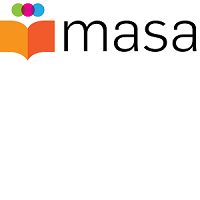Three evenings a week, in the moments before 6 PM, some 60 children and their parents rush from their homes toward busy Melrose Avenue in the South Bronx. They walk briskly, backpacks in tow, to a cafeteria located on the ground floor of Immaculate Conception Church. As students enter the utilitarian space, they know where to go and what to do: they approach their designated tables, greeted by the familiar face of their tutor. Parents make their way to a small stage, where they participate in workshops. The room is abuzz with quiet energy; children giggle with their tutors, chew on pencils, furrow their brows as they work through tough problems. Parents greet each other warmly in Spanish and lean in from their seats to hear the evening’s workshop facilitator.
This program is Masa, a Bronx-based non-profit that promotes academic achievement, civic engagement, and leadership among under-served families, with a particular focus on families of Mexican descent. As a long-time board member of Masa, I– along with my fellow board members and our wonderful, if tiny, staff – have been deeply involved in planning and implementing our programs. Founded in 2001 as an advocacy group promoting in-state tuition for undocumented students, Masa has retained its focus on education over the years, expanding and deepening our services to meet the needs of the community we serve.
As reported by the New York Times, New York City’s Mexican community has had poor educational outcomes relative to other local ethnic groups; about 41 percent of Mexican youth between ages 16 and 19 in the city have dropped out of school, while no other major immigrant group has a dropout rate higher than 20 percent. The reasons underlying this astonishing gap in academic attainment are complex, but its very existence speaks to the pressing need for programs that provide educational supports to the city’s Mexican population. In Masa’s case, this need is made all the more urgent because the vast majority of our students attend schools in local District 7. At least according to results from 2012-2013 State exams in English and Math, District 7 is the lowest-performing of the 32 districts in New York City.
All this is to say that there are real barriers to educational success for Masa’s students. However, there are also real opportunities and strengths to build upon. Masa’s families are deeply committed to academic achievement; they conceive of education as key to securing a better future for their children. They have sacrificed immensely in support of that dream, navigating an unfamiliar new city, working long hours, and diligently monitoring their children’s progress at school. Oftentimes, our families simply lack access to some of the tools or resources foundational to achieving their goals, such as access to tutors, knowledge about the complex local public education system, and English language skills. (This last issue is rendered more complex for the subset of our parents who did not have access to formal education as children, and therefore have limited literacy skills in Spanish.)
With these issues in mind, Masa has enlisted an ever-growing roster of dedicated volunteers to provide tutoring and homework help for Masa students. We work with outside organizations to provide information to parents about the complexities of school enrollment, language access, and services available for English Language Learners and students with special needs. We offer English classes for parents. And we strive to do it all while creating a welcoming community space. For our parents and children, navigating local bureaucracies can be an alienating and sometimes degrading experience. At Masa, we want families to feel safe, welcomed, and empowered.
Jessica Coffrin-St. Julien has served on Masa’s
board since 2009, closely supporting program development and operations. In the
past, she has worked at several out-of-school-time programs; currently, she
works for an education non-profit, doing research and supporting a variety of
school-level pilot projects. She feels lucky to be part of the Masa community!


No comments:
Post a Comment